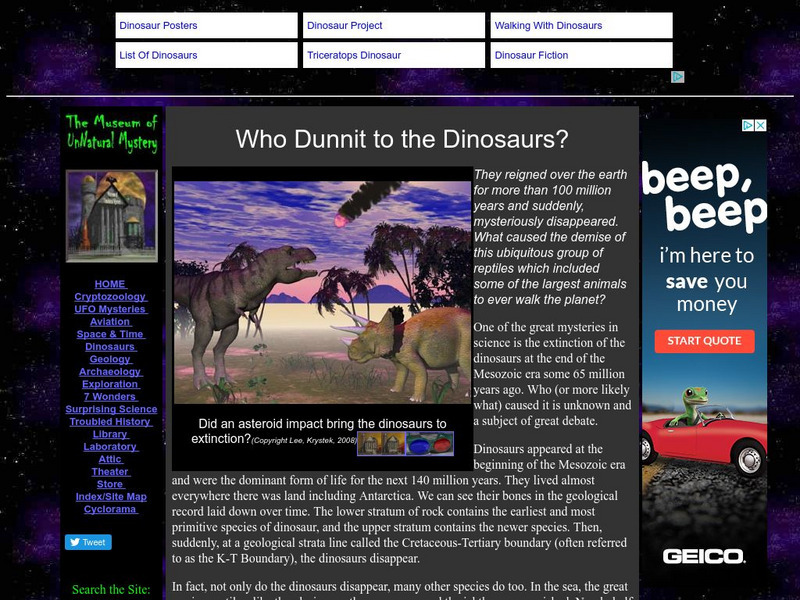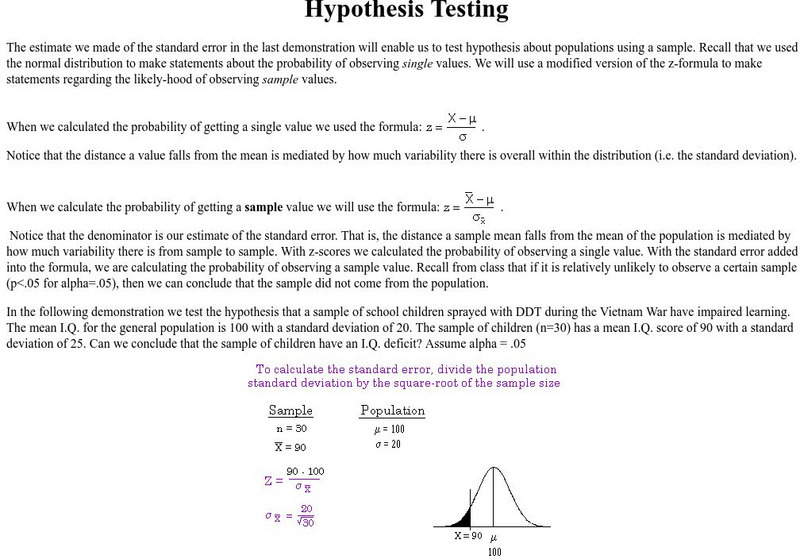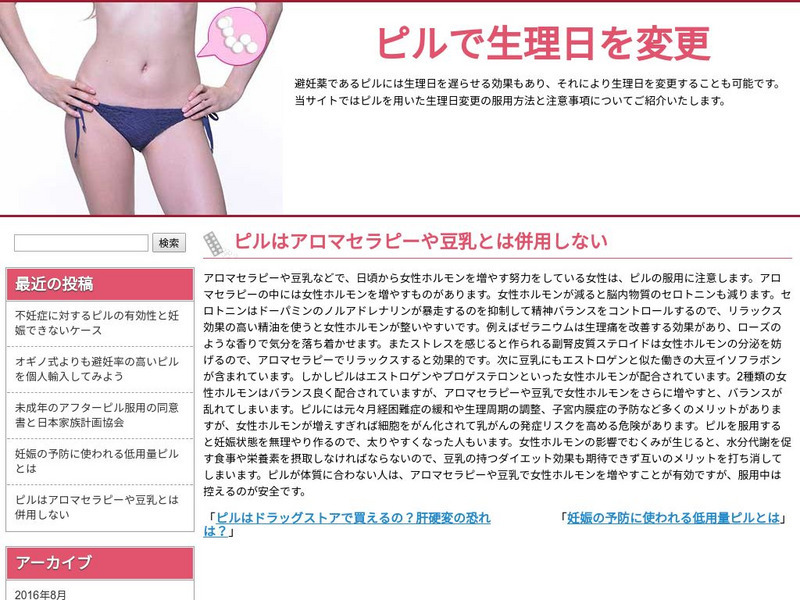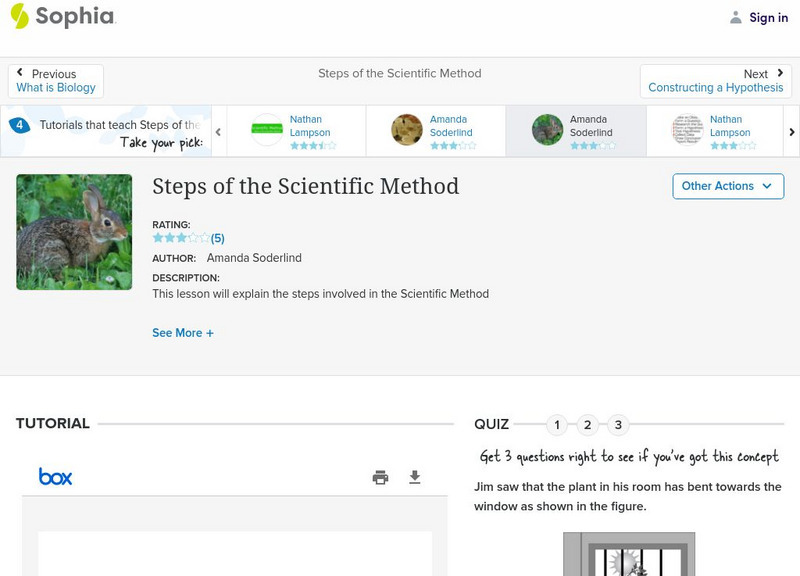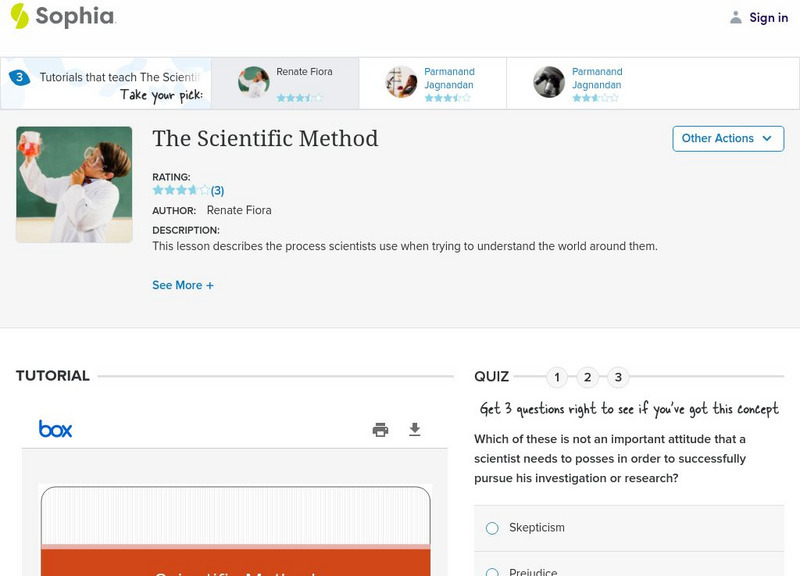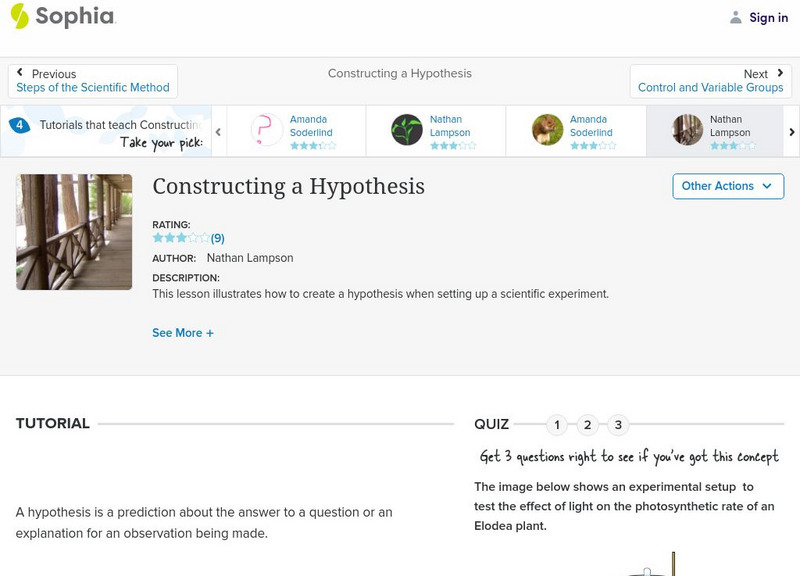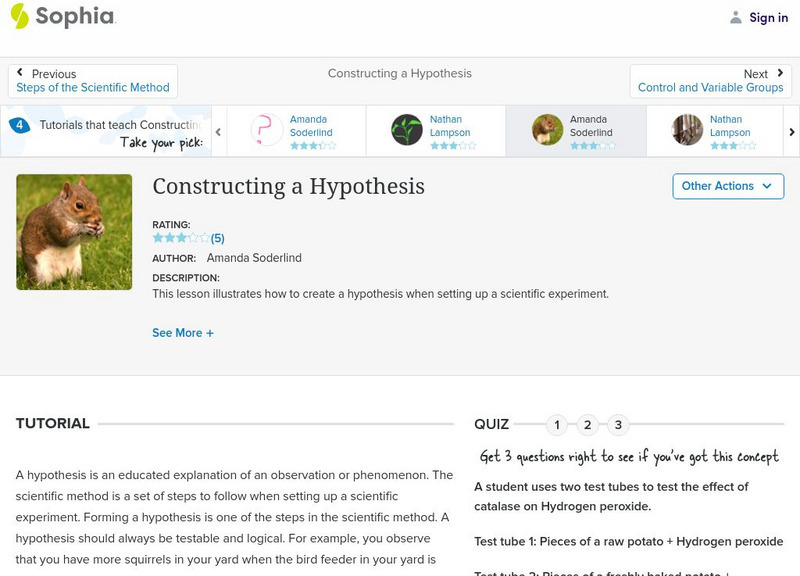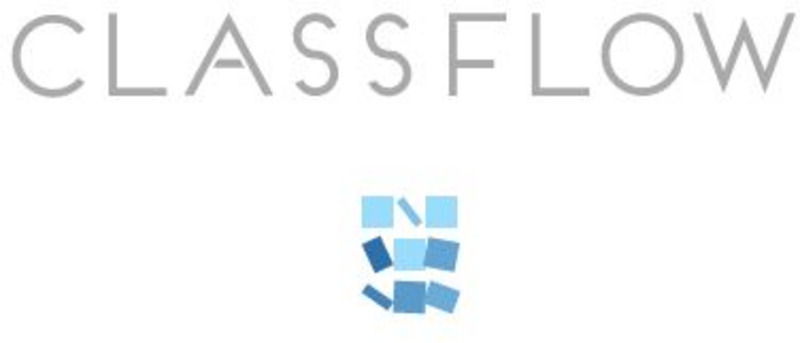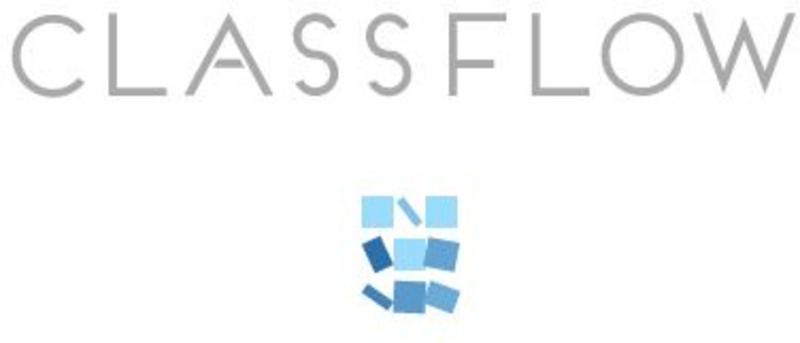Children's Discovery Museum
Children's Discovery Museum of San Jose: Animal Detectives
Go on a scavenger hunt and collect clues about what animals might live nearby. Even if you don't catch a glimpse of the creature itself, you can still tell they've been nearby.
Indiana University
Indiana University: Science vs. Non Science
This mini-lesson at the Evolution and Nature of Science Institute site from Indiana University provides a criteria by which students can evaluate an idea or explanation for scientific credibility.
Northern Illinois University
Niu: Socratic Method vs. Scientific Method
A chart which compares and contrasts the Socratic and scientific methods.
McGraw Hill
Glencoe Publishing: Practicing Scientific Processes
This site from Glencoe Publishing not only explains hypothesis but also tells how to design an experiment to test your hypothesis. Includes the difficult task of "Separating and controlling variables."
SRI International
Performance Assessment Links in Science: Follow Those Tracks
This lesson plan requires students to make an inference (hypothesis) about two animals based on the tracks they leave behind. Students are asked to write a story explaining their inference.
Other
Drs.cavanaugh: Science proj.handbook, Display Checklist
A checklist of the nine or ten items which should be on your display, plus an illustration of where they should go on a tri-fold poster.
Other
Who Dunnit to the Dinosaurs?
"One of the great mysteries in science is the extinction of the dinosaurs at the end of the Mesozoic Era some 65 million years ago. Who (or more likely what) caused it is unknown and a subject of great debate." Many theories are touched...
Other
Fayetteville State University: Hypothesis Testing
A page from the university's statistics site which builds on the standard errors from the Central Limit Theorem previously explained. Here hypothesis testing is defined and validated.
Other
Astronomy Notes: A Scientific Theory Is . . .
This brief review explains that a scientific theory comes from testing an idea.
Other
Gphsf: Basic Project Timeline
This resource is a short piece, part of a larger page, on conducting your experiment. It contains a lot of good advice.
Other
Dinosaur Extinction: One More Hypothesis
"The survivals and extinctions at the close of the Cretaceous are such as might be expected to result from intensely hot winds such as would be generated by extra large meteoritic impacts." This article suggests that this theory should...
Daily Teaching Tools
Daily Teaching Tools: The Inquiry Teaching Strategy
This Daily Teaching Tools resource provides information about using inquiry when teaching. An explanation shares the importance of using inquiry to spur curiosity in students as they engage in research.
Sophia Learning
Sophia: Steps of the Scientific Method: Lesson 4
This lesson will explain the steps involved in the Scientific Method. It is 4 of 4 in the series titled "Steps of the Scientific Method."
Sophia Learning
Sophia: Steps of the Scientific Method: Lesson 1
This lesson will explain the steps involved in the Scientific Method. It is 1 of 4 in the series titled "Steps of the Scientific Method."
Sophia Learning
Sophia: The Scientific Method: Lesson 4
This lesson describes the process scientists use when trying to understand the world around them. It is 4 of 7 in the series titled "The Scientific Method."
Sophia Learning
Sophia: The Scientific Method: Lesson 7
This lesson describes the process scientists use when trying to understand the world around them. It is 7 of 7 in the series titled "The Scientific Method."
Sophia Learning
Sophia: Two Approaches to Learn About Nature: Lesson 3
This lesson illustrates the process by which people can learn about the nature of living things. It is 3 of 3 in the series titled "Two Approaches to Learn About Nature."
Sophia Learning
Sophia: Two Approaches to Learn About Nature: Lesson 1
This lesson illustrates the process by which people can learn about the nature of living things. It is 1 of 3 in the series titled "Two Approaches to Learn About Nature."
Sophia Learning
Sophia: Constructing a Hypothesis: Lesson 2
This lesson illustrates how to create a hypothesis when setting up a scientific experiment. It is 2 of 4 in the series titled "Constructing a Hypothesis."
Science Bob Pflugfelder
Science Bob: The Scientific Method
Gives an overview of the scientific method as it relates to a science fair project.
Sophia Learning
Sophia: Constructing a Hypothesis: Lesson 3
This lesson illustrates how to create a hypothesis when setting up a scientific experiment. It is 3 of 4 in the series titled "Constructing a Hypothesis."
Sophia Learning
Sophia: Constructing a Hypothesis: Lesson 4
This lesson illustrates how to create a hypothesis when setting up a scientific experiment. It is 4 of 4 in the series titled "Constructing a Hypothesis."
ClassFlow
Class Flow: Scientific Method
[Free Registration/Login Required] This flipchart was created to teach students the steps in the scientific method (Purpose, Hypothesis, Procedures, Analysis, and Conclusion). The flipchart contains images that help to define and...
ClassFlow
Class Flow: Scientific Method Worksheet
[Free Registration/Login Required] This flipchart is a graphic organizer that was created to be completed by students, individually or as a class, during science investigation. It assists students in completing a science investigation...





